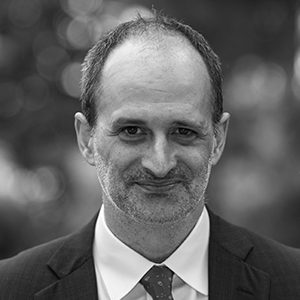
IESE Insight
We need diversity in our social ecosystem too
When one species takes over, the natural world becomes unstable. The same happens in society when one way of thinking dominates and others are pushed aside.
In nature, when a single species dominates, the system as a whole becomes unstable. Diversity is what keeps things in balance, checking the exponential growth of one species to the detriment of others, and preventing collapse.
The same holds true for societies, according to a paper published in the Academy of Management Review. But here, the diversity that is needed is institutional. And just as in the natural world, institutional diversity is in decline.
“All societies feature a mix of belief systems that determine what is considered ‘right’ or ‘normal,’” says IESE Business School’s John Almandoz, co-author of the paper with Patricia H. Thornton (Texas A&M University). These belief systems become institutions, each of which imposes its own parameters on the world: the logic of the state, the market, community, family, religion, corporations or professions (e.g., the media or public health systems). Looking at the world through these prisms is how people find and give meaning, at all levels of society.
But not all institutions hold the same weight. The market famously dominates in many Western nations — especially in the United States — as can be seen through a preoccupation with growth and a tendency to dismiss other ways of seeing the world as “not economically viable.”
Though money is important everywhere, other societies have different institutions at the forefront. In China, it is the state, as seen in previous society-shaping measures such as the one-child policy. In parts of the Islamic world, religion still dominates.
Almandoz and Thornton argue that when one way of thinking and seeing the world becomes entrenched above others, society is thrown off-balance. Market logic prizes profit above all else, but it can lead to crises such as the 2008 global financial crash or everyday miseries in for-profit healthcare. Unfettered religious leadership can restrict the priority of individual conscience and the rights of religious minorities; overdominant states, from China to Egypt to Turkey, can restrict personal and political freedoms.
How people coexist with dominant institutions
Most people want to live in a society where basic needs are met, but that doesn’t look the same for everyone.
When one worldview becomes a dominant force in society, it crowds others out. Only certain problems and solutions are considered legitimate. So, a market-driven society might prioritize boosting innovation and productivity or reducing bureaucratic red tape, but initiatives that speak to a community worldview, such as funding public libraries, take a hit.
Dormancy and activism: don’t wake the beast
When one logic dominates, others go quiet. They don’t disappear, but they lose space and influence. They’re considered less and less legitimate and become what Almandoz and Thornton term dormant.
Yet the people who believe in community, environmental or religious approaches are still there. And as the dominant institution becomes deaf to other voices, they will be pushed into activism as a correction.
Today’s climate and antiwar activists, and the resurgent evangelical movement in the United States, are symptomatic of this process. All, in their way, challenge the limits of market or state logic, insisting on the legitimacy of other institutions — community, environment, family — to shape decision-making.
Activism may be successful in overthrowing a dominant institution, or it may not. There are plenty of historical examples of both.
“Think of Martin Luther King Jr., who leveraged the dormant moral power of Black southern churches in the fight for civil rights in a segregated United States,” says Almandoz.
Other times, the gains are less clear-cut. Activists challenged market logic in the aftermath of the 2008 economic crash, but many argue that large banks made only cosmetic changes, and market logic as a whole did not become much less dominant in banking.
But the activism and instability caused by dormant logics, as they insist on being heard, are signs of a system trying to balance itself.
“Society’s health, like that of a natural ecosystem, depends on variety,” says Almandoz. “We need different voices and institutions to coexist to keep one another in check. True resilience comes from diversity.”
ALSO OF INTEREST:
How an inside-out approach to corporate purpose boosts business performance
Unity in diversity: a community of care
The case for nature-based solutions, and how to finance them
A humanistic approach to leadership creates an ecosystem in which all can thrive

